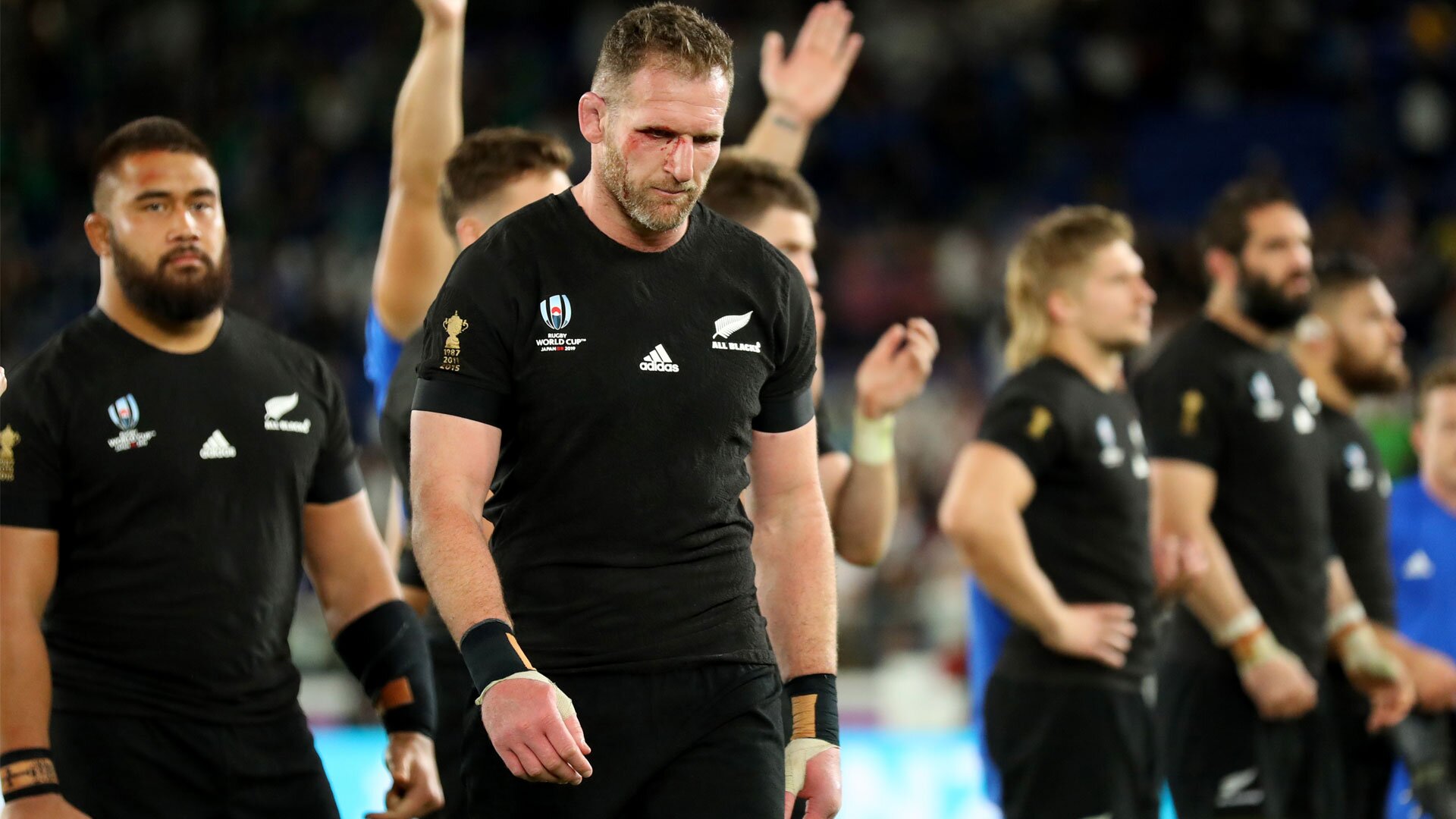The pains of a nation: 'There wasn't a single player in our 31-man squad who had lost a game at a Rugby World Cup.'

After a period of “either sulking or planning” the All Blacks are moving on, admits their new head coach, Ian Foster. There was no third Rugby World Cup crown in a row last year in Japan, after England produced the kind of physical performance in the semi-final that New Zealand rarely come across.
Foster was part of Steve Hansen’s coaching staff that day in Yokohama and is now at the start of his own reign in charge. The pain of that defeat certainly lingered for a while, but no more.
“At the end of the day, we were a group where there wasn’t a single player in our 31-man squad who had lost a game at a Rugby World Cup. So, Tokyo hurt,” Foster admits.
“It does not matter how well you prepare, it is what it is. You get reminded of it and you have two choices. Either sit back and think ‘woe is us’, or accept that’s sport, we were beaten on the day and we have to be better. To be fair, we are just starting to get excited about a new challenge. There is no point mulling too much over the past.”
Fortunately, Foster is no stranger to the New Zealand setup after eight years as an assistant working alongside Hansen, a run that included an unbeaten calendar year in 2013 and 2015’s Rugby World Cup triumph.
His appointment however was far from automatic. Foster faced fierce competition from Scott Robertson, fresh from guiding the Crusaders to the third straight Super Rugby title.
Riding with the hot hand in Robertson might have made sense to the New Zealand Rugby Union. Foster’s pitch had to be good. It must have delivered.
“I didn’t go into it thinking I was competing with other people. I went into it being tough on myself. Did I have a plan for this group that I felt was going to be the right thing for the All Blacks,” Foster told Telegraph Sport last month in Paris, following the conclusion of World Rugby’s Player Welfare and Laws Symposium.
"You will never get it done," Gus Pichot was told by the former chairman of World Rugby – which is exactly why he is now pushing so hard for change.https://t.co/LuusAMrtBP
— RugbyPass (@RugbyPass) April 20, 2020
“I spent a lot of time planning that, worrying about that. But actually, once I had it clear in my head, the process after that was relatively simple, because all you have to do is go in and say ‘Here is my plan’. I am sure they were presented with some other really good plans, but they chose mine and I have to go and deliver that.”
Whether his predecessor, Hansen, had an easier start or not following on from the 2011 Rugby World Cup win is debatable. Foster is certainly well-qualified. After close to 150 appearances for Waikato as a first-five he coached the Chiefs to two Super Rugby finals over a seven-year spell before joining Hansen’s staff. His own group contains John Plumtree (forwards), a smart appointment to go with Scott McLeod (defence) and Greg Feek (scrum).
The fact that New Zealand added Scarlets head coach Brad Mooar far later than usual should illustrate how highly Foster rates Mooar’s attacking philosophies. One of that contingent might end up sitting in the head coach’s office down the line. It was only once Foster joined the All Blacks setup eight years ago that the top job came onto his radar.
“I never had it written down on a bit of paper that I wanted to coach the All Blacks,” he admits. “But I think once I was fortunate enough to get the [assistant] job eight years ago, afterwards I felt I was almost accountable to the group to stand [for the head coaching role].
“On the basis that, if we really believed in what we had done over the last eight years, and we felt there was some good stuff in there, then it was clear that I was the one to put my hand up and go forward with that. I felt a degree of responsibility, but also it is a massive privilege to do the job. Let’s just go and have some fun with it.”
https://www.instagram.com/p/B_MBoGFAbk-/
In terms of personnel, Foster believes this is a better starting point for the All Blacks than post-2011 and post-2015, with more experienced players available. Consider some of the names who hung up their test boots after winning the final at Twickenham five years ago – Dan Carter, Richie McCaw, Jerome Kaino, Keven Mealamu, Ma’a Nonu and Conrad Smith.
There are holes to fill at lock and No 8, with Brodie Retallick on sabbatical and Kieran Read now retired after winning 127 caps. But in New Zealand, as Foster notes, there is always someone. Foster’s contract only runs until the end of 2021, although, as he points out, two-year contracts have always been standard practice for All Blacks head coaches.
Warren Gatland is now back in New Zealand coaching Foster’s old side, the Chiefs, seemingly waiting in the shadows. Robertson too, not forgetting either the unattached Joe Schmidt. That pressure to immediately deliver, Foster believes, is something to embrace rather than fear.
“A two-year deal was on the cards for whoever got the job. Personally, I would not have it any other way,” Foster says. “We’re coaching the All Blacks – we have to go well. And if we don’t go well, it doesn’t matter how long your contract is, you still have to be the right person in that seat on the bus.
“That’s my job – to make sure that I am the right person.”













































